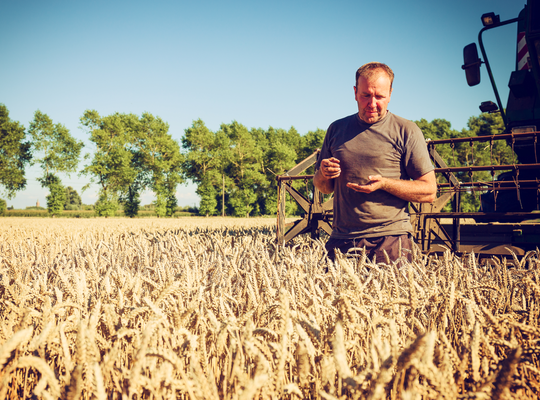You are here
Member States get a greater say in the European agricultural policy

With the reform of the Common Agricultural Policy (CAP), on Friday the European Commission is returning a whole series of tasks back to the Member States and the regions. A good thing, says MEP Sander Loones: “The Commission explicitly admits that pushing through one single policy in the whole EU has not led to the desired results. Allowing Member States to offer more custom solutions is better. In this way, Flanders will be better able to implement a policy tailored to our Flemish farmers.” Sander Loones thinks it’s a step in the right direction, although he also notes that the Commission is stopping halfway. “It is true that with the Commission’s proposal our farmers will not lose anything, but with the N-VA’s proposal we could give them even more support, so that they can earn a fair day’s wage a little more easily.”
Regional characteristics
Today, Europe sets out the rules for every European farmer right down to the tiniest detail. By so doing, it ignores important regional characteristics, such as climate differences and the crops that are grown. This often leads to resentment and a lack of understanding among farmers. The fact that the Commission is now changing course is absolutely to be welcomed. Sander Loones: “It is good that the European Commission recognises that Member States must be able to offer custom solutions in agricultural policy. I hope it will also extend this analysis to other relevant policy areas.”
Perverse system
Today, the large industrial farms in the Czech Republic, Slovakia and Eastern Germany, among others, are the great beneficiaries of European monetary aid. For example, 80% of European income support goes to just 20% of European farmers. That’s a perverse system that invites fraud. For example, we saw recently that the Italian Mafia was active in Slovakia in this regard. That is why the Commission is proposing to introduce an upper limit: a farm would be able to receive a maximum of between 60,000 and 100,000 euros in income support in the future. In this way, the intent is that more small farmers will be able to claim a larger slice of the cake.
More support for Flemish farmers
Sander Loones nevertheless has a few comments to make about the reform: “The reversal that is being implemented is good, but unfortunately there is no real break from the trend yet. Belgium today contributes more to the CAP than Belgian farmers get back in total. And it’s not a small amount. From 2015 to 2020, this amount will reach 700 million euros per year. This doesn’t have to be the case, as even the European Commission acknowledges. According to its calculations of September 2017, in case of only 30% CAP cofinancing for the 2021-2027 period, Belgium could save 1,849 billion euros. With that money, we would be able to give our own farmers additional support! Unfortunately, this will not happen, because traditional power politics prefer to keep the current Transfers The money flows from Flanders to Brussels and Wallonia are called transfers. The transfers from the federal budget, the Financing Law and social security amount to between 6 and 7 billion euros per year, and 11 billion euros if debt repayments are included. The size of the transfers is always contested by the French-speaking side or they are just referred to as normal solidarity contributions. A study by Vives (KU Leuven) revealed that the transfers did not serve solidarity, but had a paralysing effect on the growth of both the Walloon and Flemish economies. transfers in place. But I am not told that it’s our farmers who are the victims of this. Our N-VA proposal would in any case make more support possible.”

